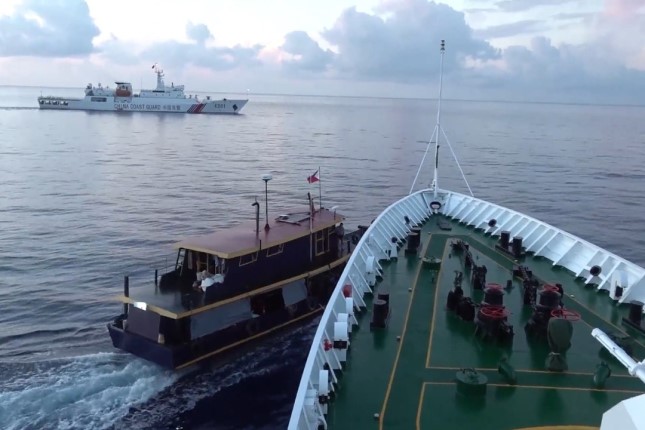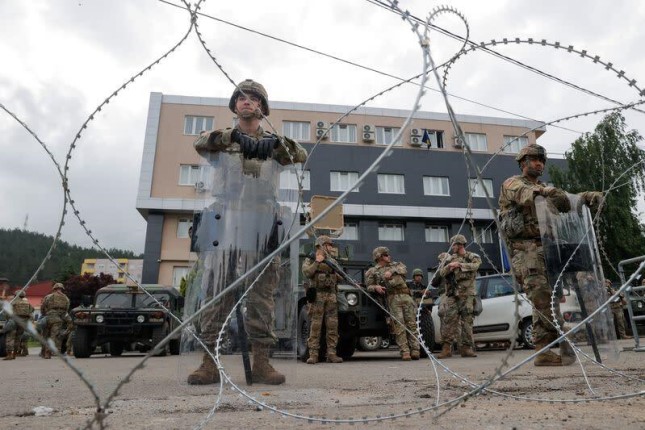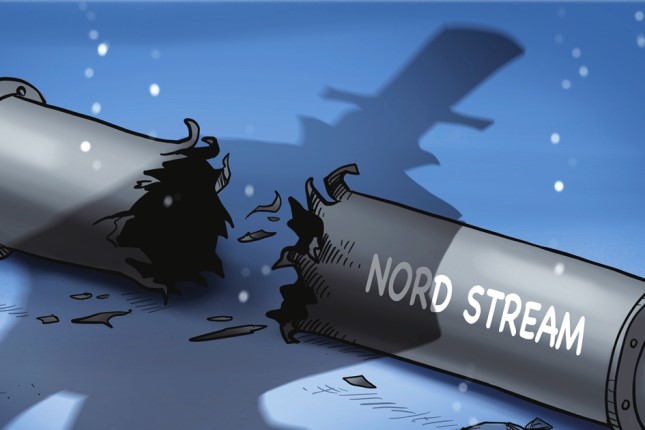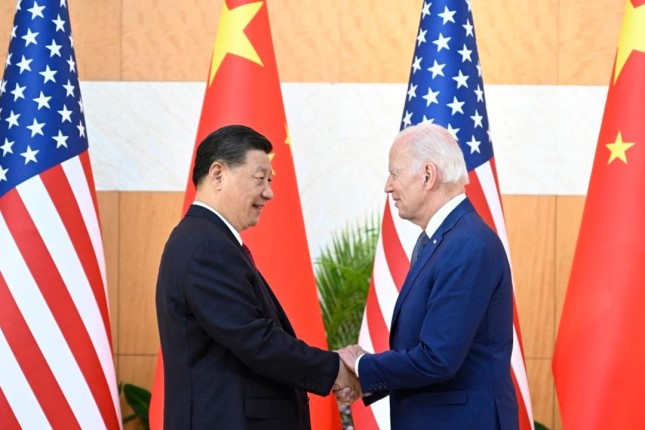The Philippine side has raised its voice and condemned China with the "strongest words." Meanwhile, some Western countries, led by the US, have quickly shown support for Manila, attempting to portray China as the "bully," while portraying themselves as "champions of justice." In comparison, China's response has been timely, objective, and composed, showing restraint to the greatest extent possible while trying to uncover the truth of the matter. It is clear who wants to control the escalation of friction, and who is deliberately stoking the flames.
The nature of the incident is crystal clear. Based on the videos released by the Chinese side, it is evident that the Philippine vessels were intentionally responsible for the incidents, especially in the second case, where the Chinese vessel was in a "stationary drifting" state, while the Philippine vessel reversed intentionally, leading to the new incident. Moreover, in the videos, it's apparent that the bumps were very light, but Manila and some Western countries were using words like "collision" and "hit" to exaggerate the situation. This is akin to if a car deliberately scratches another car while the latter is legally parked in its spot. But instead of owning up to the mistake, the first car's owner gets off the vehicle and cries "bully," while a group of people immediately gathers to demand money from the driver of the second car. Isn't this a classic case of malicious blackmail?
Bluntly speaking, the Philippines today seems to be behaving like someone who has consumed a lot of cheap alcohol and is now "drunk driving" in the South China Sea or attempting to provoke incidents under the influence. There's a saying that even when you're drunk, your mind remains sober. The Philippines should be aware that it will never be able to gain an advantage over China through any means. On the contrary, this approach is very dangerous. According to international norms, whether it collides with others or is involved in a collision, it is entirely responsible for the consequences.
Since this year, the behavior of the Philippines in the South China Sea has become increasingly radical, and it could even be said, more audacious. This includes inciting Filipino fishing vessels to intrude upon Huangyan Island, and repeatedly attempting to smuggle construction materials to the "grounded" Filipino warship at Ren'ai Reef. If this continues, it's only a matter of time before it leads to friction or even conflicts with China's resolute maritime law enforcement forces, who are committed to defending our national sovereignty, security and maritime interests.
Perhaps, certain political forces within the Philippines, along with external interference, might want to see things escalate to this point. However, if the Philippines truly provokes a confrontation with China in the South China Sea, what does it mean for the Philippines? What does it mean for China-Philippines relations? What does it mean for the overall peace and stability of the South China Sea region and the framework of mutual benefit and cooperation? Who stands to lose, and who stands to gain? The answers to these questions are obvious. The more countries outside the region rush to support and encourage the Philippines, the more cautious the Philippines should be.
China does not want to see this scenario unfold. Therefore, on the issue of the Ren'ai Reef, China has exercised great restraint and patience, maintaining intensive communication with the Philippines through various levels and channels in recent times. However, this restraint requires a positive response from the Philippines. If the Philippines tries to take advantage, China will not indulge it, and China has no room for compromise or concession on territorial sovereignty issues. The Philippines should not entertain any illusions.
After this incident, there are some analyses within the Philippines suggesting that Beijing is testing Washington's commitment to protecting its allies. To be honest, China has never been interested in testing Washington's resolve, and China's determination to uphold national sovereignty and territorial integrity is not influenced by anyone's preferences. It's likely that Manila is the one attempting to test Washington's resolve. Regardless of what unrealistic expectations some individuals in Manila may have about Washington, gambling in this manner will lead to consequences that Manila cannot bear.
The actions of the Philippines in the South China Sea often involve bringing Filipino and Western media reporters along to stage and create a spectacle, concocting impressions of being bullied by China. The planners and the actors, including the media and the Philippine Coast Guard, are well aware of what's happening, but the Philippine public normally may not have a clear understanding of the facts. After a few rounds of such sensationalism, it has left the Philippine domestic discourse on the South China Sea issue very agitated. The Philippine side should not assume that this kind of sensationalism is effective; it is not a good thing and can lead to an irrational outpouring of emotions, potentially pushing the Philippines into an uncontrollable situation. Both China and the Philippines have emphasized that the South China Sea is not the entirety of China-Philippines relations. The implication here is not to let the South China Sea issue escalate and get out of control to disrupt the overall China-Philippines relationship. However, the actions of the Philippine side are contrary to this consensus.
The sovereignty over Ren'ai Reef is not disputed, and it is the Philippines that has artificially created the so-called "dispute" using provocative tactics. The military vessel "grounded" at Ren'ai Reef is already in a dilapidated state; it should have been put to an end long time ago. China will never allow the Philippines to use this derelict warship as a basis for reinforcing and building in order to achieve its goal of occupying the Ren'ai Reef. This is not even a consideration. Proactively removing the warship or allowing it to naturally decompose would be the most rational choice for the Philippines, which will be thoroughly proved by subsequent developments.
The above is a sincere piece of advice for the Philippines, and it can also be seen as a strong warning.
Photo: A Philippine vessel approaches a China Coast Guard vessel in a dangerous manner and leads to a bump in waters off China's Ren'ai Reef in the Nansha Islands in the South China Sea on October 22, 2023 © Screenshot from a video released by China Coast Guard.
Source: The Global Times.
































